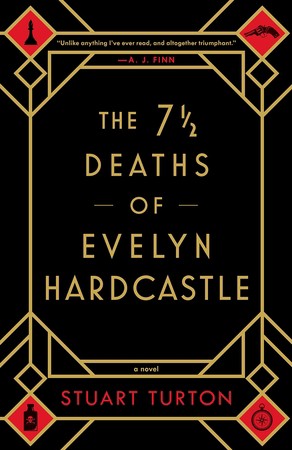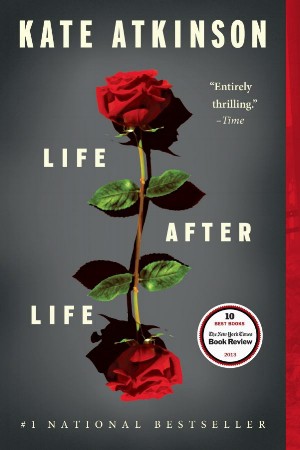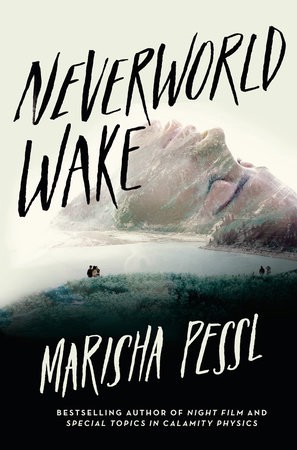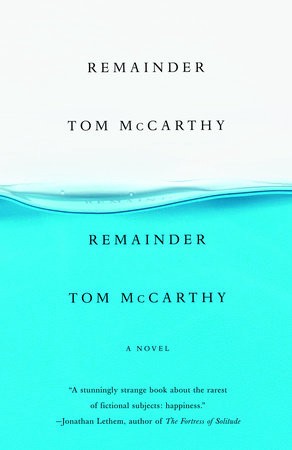Reading Lists
7 Books About Time Loops
What if you had to relive the same day over and over again?

Have you ever done something foolish, or perhaps embarrassing, that changed your life for the worse? What typically results from regretful decisions or mistakes is an immediate desire to rewind the clock and start over. It would be so easy to just press a refresh button and begin again; to either start at the beginning of that office party where your boss heard you talking about her or perhaps — while we’re at it — just start again from birth. Time loop stories offer characters the chance to press that button. Though the loop in which they find themselves is, more likely than not, unwelcome.
In the Netflix series Russian Doll, Nadia spends her birthday laboriously trying not to die, only to relive the beginning of her party. In Groundhog Day, Phil Connors does everything he can to escape the repetition of living the same day on repeat. This narrative device gives us a glimpse of what life might be like if we had the ability to fall asleep and wake up with the ability to restart the day. After reading these time loop novels, and the chaotic worlds in which the characters find themselves, you might decide it’s not even worth it.
The 7 ½ Deaths of Evelyn Hardcastle by Stuart Turton
Russian Doll begins with Nadia staring into the bathroom mirror of her birthday party; faucet running, “Gotta Get Up” blasting from the speakers, impatient knocks on the door. With a similar dramatic flair, The 7 ½ Deaths of Evelyn Hardcastle begins with a man waking up in a forest with no memory of who or where he is. He comes to learn that he’s living in a bizarre house party murder mystery, in which he must discover Evelyn Hardcastle’s killer or else he will wake up in a new body, with no memory, and be forced to begin again. The 7 ½ Deaths of Evelyn Hardcastle turns the time loop narrative into a nail biting mystery, featuring a 1920s parties and several body swaps.
Life After Life by Kate Atkinson
Nadia dies several deaths, some more gruesome than others. In Life After Life, Atkinson’s protagonist, Ursula, has a similar proclivity for unlikely deaths, from falling off a roof to getting suffocated in her sleep by a cat sitting on her face. Though Ursula’s time loop does not begin again in the same place every time she dies, she does get the chance to learn from her past lives, to revise and rebuild. She gets the chance to revisit characters that played important or harmful role in her past lives. Underlying Atkinson’s story is a lesson on the way people’s lives are intertwined, as with the tale of Nadia and Alan.
The First Fifteen Lives of Harry August by Claire North
In The First Fifteen Lives of Harry August, the titular character is not the only one living in a time loop. He belongs to a group of people, called kalachakra — a buddhist term that means “wheel of time” — who are able to relive their lives every time they die. Unlike Russian Doll, in which Nadia is tasked with changing the course of that one fateful day, Harry and the rest of the kalachakra have one rule: they must not meddle with history. One of the members of the group strays from the pact, and Harry, being the only one able to recall past lives, has to find and stop him.
Before I Fall by Lauren Oliver
In Before I Fall, the protagonist finds a chance at redemption in her time loop. Samantha, having been bullied as a child, believes she has the right to do the same unto others. When her deaths result in a time loop, she is forced to relive the last day of her life seven times and reflect on the harm she causes. Rather than a novel about changing the course of one’s life, or the course of one important day, Before I Fall explores the nature of changing oneself.
Neverworld Wake by Marisha Pessl
Five best friends are stuck in limbo, reliving the same day until they decide which one can leave, and only one of them is allowed to go back to the world of the living. The catalyst for their being stuck in time is a car accident that threw them all into this purgatory-like existence — a place they call Neverworld Wake. In this novel, the mystery does not come from the surreal nature of the time travel; the characters know what has happened and how to fix it. Rather, the puzzle to be solved is within the characters themselves. The group of friends used to have a sixth member, who recently died, and they are each holding back information about his death.
Replay by Ken Grimwood
Replay follows Jeff Winston, a man who dies at the age of 43, and then replays his life only to die at 43 again, and then again, and — you guessed it — again. The first few replays of Jeff’s life feature a trajectory familiar to characters who can tell the future; using the information he has from his previous lives in order to better the present life. Eventually, Jeff meets Pamela, another person in the throes of a similar time loop, and they cross paths repeatedly. Jeff and Pamela join forces to learn about the inexplicable world in which they’ve found themselves.
Remainder by Tom McCarthy
The protagonist in Remainder finds himself in a time loop willingly. Having woken up just after an accident, with only small glimpses of memories from beforehand, he is determined to uncover what happened to him. Though he has no solid recollections, certain things incite vague memories such as a particular crack in a tenement wall. He takes these instances of déjà vu and runs with them, setting up re-enactments in the hopes to find out more about his past. And when this task proves to be more difficult than he’d thought, he repeats it, and repeats, and repeats; creating a time loop of his own making.















